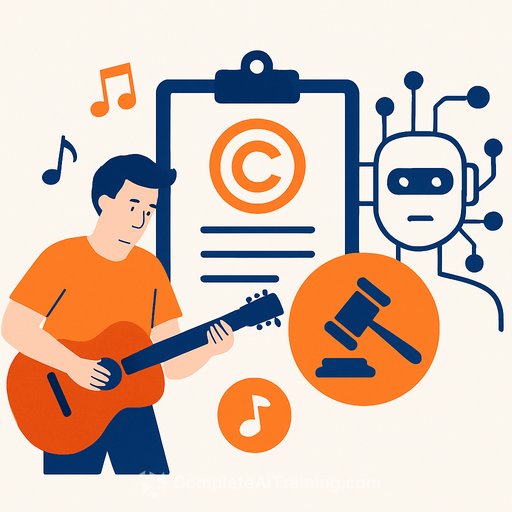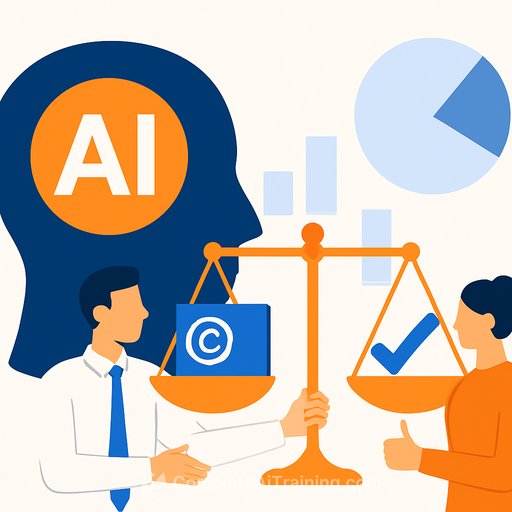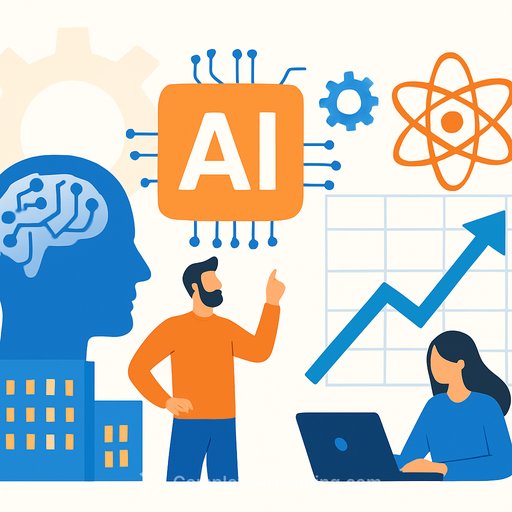AI firms accused of "wilful" use of artists' work: what creatives need to know
Generative music is flooding platforms, and rights holders say it's costing real money. Industry bodies warn artist income could drop by more than 20% as AI-made tracks scale. The International Confederation of Music Publishers (ICMP) has accused several AI companies of "wilful, commercial-scale" copyright infringement.
This isn't abstract. It's your catalog, style, and voice being scraped, cloned, and uploaded-often without consent or pay.
ICMP's case in brief
ICMP, a Brussels-based group representing music publishers and majors, ran a nearly two-year investigation into how AI companies train and generate music. The group says firms are engaging in widespread "scraping" of lyrics and recordings using crawlers, then recreating styles and voices without permission.
ICMP's director general John Phelan called it "the largest copyright infringement exercise that has been seen," citing OpenAI, Suno, Udio, and Mistral among the companies named. Many tech firms point to "fair use" as a defense, a U.S. doctrine allowing limited use of copyrighted works in specific contexts. Learn how fair use is evaluated.
According to reports, Suno and Udio can output tracks that echo the Beatles, Depeche Mode, Mariah Carey, or the Beach Boys-complete with voices, melodies, and stylistic fingerprints. OpenAI, Google, Mistral, Suno, and Udio did not comment, per AFP.
Why this hits your income
AI-generated music is already live on streaming services. AFP reports that 28% of uploads on France's Deezer are AI-made, and that share grew fast over the last year. The International Confederation of Societies of Authors and Composers (CISAC) warns creators' income could shrink by as much as 20% over the next four years if this continues.
When synthetic tracks compete with your catalog-often trained on it-royalties get diluted, discovery gets harder, and brand equity erodes.
The legal front is heating up
The Recording Industry Association of America (RIAA) sued Suno and Udio last year in the U.S. ICMP members want tougher transparency rules via the EU's Artificial Intelligence Act. Read the EU AI Act.
There are deals happening too: Eleven Music reportedly signed a licensing agreement with Kobalt. Universal, Warner, and Sony are in talks with Suno and Udio for broader licensing. In the U.K., top artists pushed back after the government floated permissions that would allow training on books, lyrics, scripts, and music without prior consent.
"There can be no use of copyright-protected music without a licence," said Juliette Metz, president of the French music publishers' association and an ICMP member. Reports also note that Anthropic agreed to fund compensation for rights holders following lawsuits over training data.
What to do now
- Register everything: ensure ISWC/ISRC codes and copyright registrations are complete for songs, masters, and lyrics. It strengthens enforcement and licensing leverage.
- Audit your contracts: add AI-specific clauses covering training, synthesis, derivatives, attribution, and minimum rates. Close loopholes on stems and session files.
- Set up monitoring: track lyric phrases, hooks, and distinctive timbres across major platforms. Log dates, links, and evidence for takedowns or claims.
- Enforce at scale: use platform takedown tools and send notices to AI firms when you find cloned material. Coordinate with your publisher/PRO and industry bodies.
- License proactively: if you choose to participate, negotiate paid licenses for training and generation with strict usage limits, transparency, and audit rights.
- Control your data: keep unreleased stems private, watermark where feasible, and be selective about sample packs that contain your unique sounds.
- Label your own outputs: if you use AI in production, disclose it clearly to avoid confusion, protect brand trust, and align with emerging transparency rules.
- Engage policy: support groups advocating for consent, credit, and compensation. Follow EU/US rulemaking and submit comments where open.
What to watch next
- Licensing deals between majors and AI music generators-and whether rates and terms set useful precedents for independents.
- Courts' stance on scraping, fair use, and style cloning, plus how the EU AI Act's transparency and rights protections are implemented.
- Platform policies on AI uploads, labeling, and monetization splits as synthetic volume grows.
The stakes are clear. As Phelan put it, what's "legal or illegal is how the technologies are used." Creatives want the same thing they've always wanted-consent, credit, and fair pay.
If you need structured resources to work with AI without giving away your rights, explore practical training for your role at Complete AI Training.
Your membership also unlocks:






